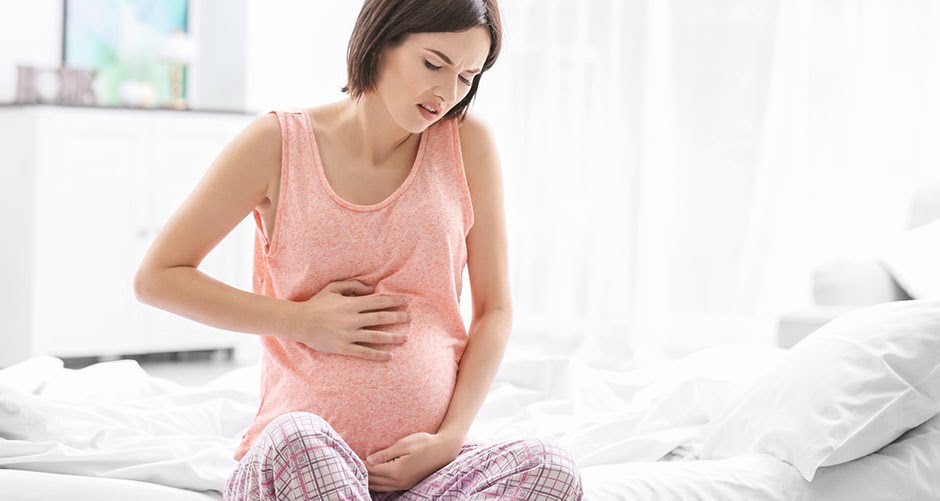
Constipation is a common problem during pregnancy that many expectant mothers experience. Up to 40% of pregnant women have issues with constipation at some point. It can be very uncomfortable and frustrating, but there are ways to help relieve the symptoms and prevent it from occurring.
What is Constipation?
Constipation refers to infrequent, difficult, or incomplete bowel movements. It means stool passes less than 3 times a week or the stool is hard, dry, and difficult to pass. Other symptoms include straining, pain, bloating, and a sense of blockage when trying to have a bowel movement.
Why Does Constipation Happen During Pregnancy?
There are several reasons why constipation occurs more frequently during pregnancy:
- Hormonal Changes– Higher levels of progesterone relax the intestinal muscles which slows down the passage of food through the intestines. This allows more water absorption from the stool making it harder and drier.
- Iron Supplements– Most prenatal vitamins contain iron which can cause constipation. The iron hardens the stool.
- Calcium Supplements– Calcium taken during pregnancy has a binding effect and can make you constipated.
- Dehydration– Not drinking enough fluids can worsen constipation by making stool harder. Pregnant women need extra fluids.
- Diet Changes– Some pregnant women eat less fiber and focus on consuming more calories. Fiber helps form soft bulky stools.
- Slowed Digestion– Physical and hormonal changes slow down the muscular contractions that move food through the intestines.
- Pressure on the Rectum– The expanding uterus puts pressure on the rectum making it difficult to empty the bowels.
Symptoms of Constipation During Pregnancy
The common symptoms of constipation experienced by expectant mothers include:
- Passing fewer than 3 bowel movements per week
- Hard, dry, lumpy stool that is painful or difficult to pass
- Straining and pushing with no success
- Bloating, cramping, swelling in the abdomen
- Feeling like the rectum is blocked
- Using manual maneuvers to empty the bowels
- General abdominal discomfort and sluggishness
- Nausea
- Loss of appetite
- Hemorrhoids
If you haven’t had a bowel movement for 3 or more days then you could be severely constipated. The longer the stool remains in the colon, the more water is absorbed making it harder to pass.
When to See a Doctor
You should consult your obstetrician or midwife if:
- Constipation is persistent and not relieved by home remedies
- You have abdominal pain, vomiting, loss of appetite, or hemorrhoids
- No bowel movement for over 3 days
- Blood in the stool
- Weight loss
- Intestinal obstruction is suspected
Severe constipation can sometimes be a sign of a more serious medical condition, so it’s important to seek medical advice. Your doctor can properly diagnose the cause and rule out any underlying problems.
Health Risks of Untreated Constipation
Leaving constipation untreated can lead to the following complications:
- Hemorrhoids– Straining to pass stool can cause swollen veins in the anus and rectum. Hemorrhoids can be painful.
- Fecal impaction– Hardened stool gets stuck and blocks the intestines. This needs immediate medical treatment.
- Tearing of the Anus (anal fissure)– The rectum tears from the strain of trying to pass a very hard, dry stool.
- Bowel obstruction (intestinal blockage)– The stool gets lodged and is unable to pass through the intestines. This is a medical emergency.
- Rectal prolapse– Straining too hard causes part of the rectum to slip out of place and protrude from the anus requiring surgical treatment.
Let your doctor know if you haven’t had a bowel movement for several days so they can prescribe appropriate treatment before complications develop. Never use laxatives without your provider’s consent.
How to Prevent and Relieve Constipation During Pregnancy

Making certain lifestyle changes can help alleviate or prevent constipation:
- Drink plenty of fluids– Stay hydrated by drinking at least 8-10 glasses of water daily. Warm/hot liquids stimulate bowel motility.
- Eat high-fiber foods– Consume fruits, vegetables, whole grains, beans, lentils, prunes, and bran which add bulk to stool.
- Exercise regularly– Do moderate physical activity like walking, swimming, or prenatal yoga. This helps food move through the colon.
- Respond to urges and don’t delay– Go to the bathroom when you feel the urge to have a bowel movement. Holding it in causes stool to dry out and harden.
- Take a stool softener or laxative– Ask your doctor about taking over-the-counter laxatives or stool softeners like Colace as needed.
- Squat, don’t sit– Squatting straightens the angle of the rectum allowing for easier elimination. Use a small footstool while sitting on the toilet.
- Massage the abdomen– Light massage in a clockwise direction can stimulate bowel activity.
- Eat prunes– Prunes are a natural laxative with lots of fiber.
- Try probiotics– Probiotic supplements promote healthy gut bacteria and regularity. Ask your doctor for a prenatal probiotic.
- Have yogurt– The good bacteria (probiotics) in yogurt aids digestion. Choose yogurt with active cultures.
- Reduce iron– If iron supplements are causing constipation, consult your doctor about adjusting the dose.
- Get moving after eating– Take a 10-minute walk after meals to stimulate the colon. Physical activity overall improves bowel motility.
Medical Treatments for Severe Constipation
If lifestyle measures don’t provide relief from constipation during pregnancy, some medical options may help:
- Stool Softeners– Docusate sodium is often recommended as an oral stool softener for pregnant women. It increases moisture content to soften stools.
- Stimulant Laxatives– These stimulate intestinal contractions. Stimulants like senna, bisacodyl, or glycerin suppositories may prescribed in the lowest effective dose. They are considered safe for occasional use.
- Fiber supplements– Adding a fiber supplement can help if dietary fiber is inadequate. Psyllium, methylcellulose, or calcium polycarbophil are gentle options.
- Lubricants– Mineral oil coats stools and the intestinal wall allowing easier passage. Consult your doctor before use.
- Enemas– Saline, oil retention, or milk/molasses enemas can provide immediate relief if obstructed. Rectal stimulation prompts a bowel movement.
- Manual Removal of Stool– A healthcare provider may need to manually disimpact severely hardened stool blocking the rectum if other treatments fail.
Always talk to your OB-GYN or midwife before taking any laxatives, enemas, or rectal medications while pregnant. Proper hydration and fiber should be tried first. Laxative overuse can become habit-forming.
Lifestyle Changes and Home Remedies for Constipation
There are many easy, natural ways to get things moving again without the use of laxatives or medications:
- Drink a tall glass of warm or hot water first thing in the morning
- Eat a high-fiber breakfast with fruit, oatmeal, whole grains and yogurt
- Snack on dried prunes and dried apricots which have natural laxative effects
- Drink prune juice which is high in fiber and sorbitol, a natural laxative
- Eat a handful of raw almonds which are high in magnesium to aid bowel motility
- Add ground flaxseed or chia seeds to yogurt, oatmeal, and salads
- Drink warm mint or ginger tea to relax the digestive tract
- Eat probiotic foods like kimchi, kefir, sauerkraut and kombucha to boost healthy gut bacteria
- Try drinking aloe vera juice to hydrate the colon and soften the stool
- Do light exercise like walking, pelvic tilts or pregnancy yoga poses after meals
- Take a warm bath and massage your abdomen in a clockwise rotation
- Use a warm water bottle or heating pad on your abdomen
- Squat and stick your knees up towards your chest while on the toilet
- Go for a bumpy drive in the car which can stimulate a bowel movement through the jostling
- Laugh out loud – this engages the abdominal muscles to get things moving!
Foods and Drinks That Help Relieve Constipation
- Raisins
- Figs
- Spinach
- Broccoli
- Pears
- Apples
- Kiwis
- Oranges
- Mangoes
- Potatoes with the skin
- Sweet potatoes
- Lentils
- Chickpeas
- Baked beans
- Cereals with at least 5g fiber per serving
- Oatmeal
- Whole-wheat or multigrain bread
- Bran muffins
- Nuts and seeds
- Popcorn
- Coffee
- Warm lemon water
- Prune juice
- Aloe vera juice
- Smoothies with flaxseed
- Probiotic drinks like kefir
Foods to Avoid That Can Cause Constipation
- White bread, pasta, rice
- Processed snack foods like chips, cookies
- Cheese
- Meat
- Fast food
- Frozen meals
- Pizza
- Eggs
- Yogurt with artificial sweeteners
- Crackers
- Chips
- Pretzels
- Milk chocolate
- Condiments like ketchup
- Sugary soda
- Alcohol
- Caffeinated beverages
- Fried foods
- Frozen yogurt
- Ice cream
Sample High Fiber Meal Plan for Pregnancy Constipation
Breakfast: Oatmeal with fresh berries + ground flaxseed + almond milk + prune juice
Snack: Apple with peanut or almond butter
Lunch: Veggie and chicken soup with whole grain crackers + raspberries
Snack: Bran muffin + Greek yogurt
Dinner: Baked salmon + roasted Brussels sprouts + wild rice + kale salad
Evening Snack: Trail mix with dried fruit, nuts, and seeds OR figs + cheese stick
Foods to Eat When Constipated While Pregnant
- Prunes – high in fiber, also have natural laxative sorbitol
- Pears – contain sorbitol
- Apples – contain fiber and sorbitol; eaten with skin
- Berries – blackberries, raspberries, and strawberries have seeds that add bulk
- Citrus fruits – oranges, grapefruit, lemons; vitamin C draws water to the stool
- Raw vegetables – carrots, celery, cucumbers, peppers, radishes
- Cooked veggies – artichokes, asparagus, broccoli, spinach, sweet potatoes, peas
- Oatmeal – adds a lot of bulk due to soluble fiber that absorbs water
- Ground flaxseeds and chia seeds – mucilaginous fibers bind with water to soften stool
- Beans and lentils – loaded with fiber to help move things along
- Bran cereal – look for at least 5 grams of fiber per serving
- Whole wheat or seedy multigrain bread – for extra bulk and fiber
- Popcorn – insoluble fiber speeds up intestinal transit
- Nuts – especially almonds and pistachios
- Dried fruit – figs, apricots, dates, raisins, cherries contain sorbitol
- Probiotic foods – yogurt with active cultures, kefir, kimchi
- Prune juice – natural mild laxative, high in fiber, draws water into the intestines
- Water, water, water – stay hydrated with at least 8 glasses daily
Frequently Asked Questions About Constipation During Pregnancy
Here are some common questions and answers about dealing with constipation during pregnancy:
Q: When should I call my doctor about pregnancy constipation?
A: Contact your OB-GYN or midwife if constipation persists for more than 3 days, you see blood in your stool, experience nausea/vomiting, have severe abdominal pain, or can’t pass gas. This could indicate a serious issue that requires medical attention.
Q: Is it normal not to poop every day during pregnancy?
A: It’s generally normal not to have a daily bowel movement during pregnancy, but going 3 days or more without pooping can be cause for concern, especially later in pregnancy. Try to maintain a healthy diet with probiotics and fiber to keep your bowels regular.
Q: Can being constipated hurt the baby?
A: Severe, chronic constipation usually won’t directly impact the baby. However, straining very hard while constipated can potentially reduce blood flow to the uterus. That’s why it’s important not to ignore the condition and to seek relief.
Q: When can I start taking stool softeners while pregnant?
A: You can start taking over-the-counter stool softeners like Colace early on in pregnancy to help soften and ease the passage of stool. Just be sure to consult with your doctor about dosage and frequency first for safety.
Q: How much fiber do I need per day during pregnancy?
A: You should aim for 25-35 grams of fiber daily from high-fiber foods. This helps prevent constipation and keeps your bowels regular. Good sources are fruits, vegetables, whole grains, beans, nuts, and seeds.
Q: Can probiotics help with pregnancy constipation?
A: Yes, probiotics have been found effective for treating constipation during pregnancy. Look for supplements with probiotic strains like lactobacillus and bifidobacterium which support healthy gut function and motility. Always run it by your doctor first.
Q: What fruits are natural laxatives when pregnant?
A: Some fruits have a gentle laxative effect including prunes, prune juice, pears, apples, cherries, peaches, and apricots. Eat them whole or make fruit smoothies for natural constipation relief.
Q: Are there risks of enemas and laxatives while pregnant?
A: Laxatives and enemas can cause dependency with overuse or be harmful if utilized incorrectly. Check with your OB-GYN before taking it while pregnant and only use it as an occasional last resort when gentle remedies fail.
Conclusion
Constipation is very common but also very uncomfortable for many women during pregnancy. Thankfully, there are many effective remedies, lifestyle changes, and treatments to help relieve the symptoms and avoid complications. Be sure to drink plenty of fluids, exercise, increase fiber, respond to urges immediately, and consult your doctor about the use of stool softeners or laxatives if needed. With some adjustments to your diet, hydration, and toilet habits, your bowels should stay regular and comfortable throughout your pregnancy so you can focus on the joy of motherhood ahead!
Mustafa Al Mahmud is a passionate medical writer and health enthusiast. He is excited to share his knowledge and make reliable health information more accessible through Quick Medico. Mustafa aims to write about common diseases, medications, wellness topics, and the latest health research in easy-to-understand language. He believes clear and accurate health communication empowers readers to take charge of their well-being. In his free time, Mustafa enjoys hiking, cooking, and spending time with his family.



